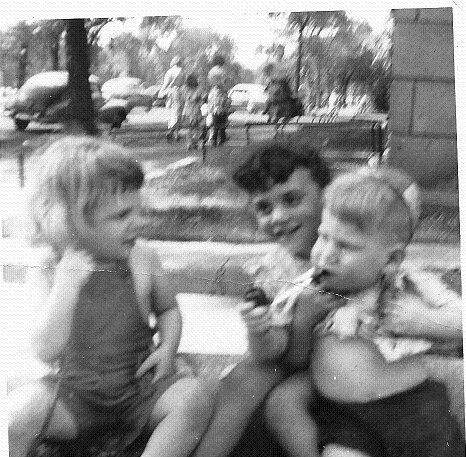By Larry Teren
There we were, the three of us- Ma, cousin Carl and I- sitting in his private room at a rehab facility. Three people in search of a method acting coach to supply us with the lines to speak in a too often repeated scenario. Carl fell down in his house and broke his leg. Surgery pieced back together the broken shards and now they had to heal. The surgeon told him he would stay at the facility for three months until his leg was strong enough so that he could stand on his own two feet without someone monitoring his every movement.
This scene was somewhat a rerun from an earlier time. Two years prior Carl had heart issues. The doctor back then gutted him like a halibut in order to clean out his arteries. At least this time he was on the first floor. The second floor was an inconvenience to traverse to at the facility. You couldn’t take the stairs unless escorted by a worker who knew the pass code. There was no service elevator. Even when either of the two elevators would finally show up half the time it was filled with rolling carts.
Ma and I sat on the long couch facing Carl and watched him sit in a chair as he ate lunch. For a moment he stared at the corn on the cob wondering if he dared try putting it in his mouth and going at it like a pig in a poke while he had company. Instead, he took a knife and sliced off the layer of nibblets and popped them into his mouth.
Carl had nothing to say nor seemed interested to get Ma or I chatting. While he was sipping water I broke the interminable three minutes of quiet by asking him if he had his Diet Coke put away. You see, Carl lived on Diet Coke. It was a joke among everyone who knew him. He bluntly, as was his style, replied that his doctor told him he couldn’t drink Diet Coke anymore. Even though it had no sugar or sodium, it was bad for him. The carbonation kept him bloated. He had to get used to drinking good old water to purify his system.
The phone rang. It was too far for Carl to reach. I got up and answered it at the same time moving it closer so that he could pick up future calls. I thought I recognized the voice on the other end, gave him the phone and said, “It’s your son.” As soon as Carl began the conversation, I realized now that it was his wife. Carl had a habit of repeating what someone said to him over the phone so it was easy to understand the conversation. The most important words spoken were, “yes, there’s a nice flat tv screen on the wall.” What else were you going to do for three months besides two therapy sessions a day?
While listening to Carl chat up his wife, I stared briefly at Ma and started having that “we’ve played this scene before” notion spinning in my head. Except that it had the specter of the same three actors switching around roles based on the director’s whim. Three times in the past two years, it was Ma doing rehab and Carl coming to visit her with his wife. And, of course, there was Carl’s heart operation episode a couple of years ago when the three of us pow wowed as well.
My participation stayed somewhat the same as the intermediary and conversation facilitator. Still, this was not the way for an aunt and two cousins to get together but we didn’t make the rules. Hey, we rarely otherwise socialized. But that’s what family was for, regardless of how close the relationship. Friends visited the sick to score points; relatives because they were supposed to.
Dad spent six years and nine months in a nursing home. A core group of friends never forgot him and made an effort to visit every so often. You kept track of things like that. Some say that you didn’t remember those who came to pay respects, but instead those who didn’t.
Years ago I visited my Great Uncle Louis in the hospital a few times. He was going back and forth from staying at his son’s house with a caretaker. One time he was lying flat on the hospital bed looking straight up. He had no strength to turn his body. His doting wife said out loud that he had a visitor, his grandnephew. I said hello and he called back with halting energy my brother’s name. My aunt corrected him and said that it was me. He replied forlornly, “oh.” Hey, I knew he liked my brother better and it didn’t bother me none.
There is, I guess, a selfish aspect to visiting sick relatives. We keep the chain letter going hoping that when the director says it’s our time to take on the leading role, our family members- close or not- will play their roles as well. Cut. That’s a wrap.
